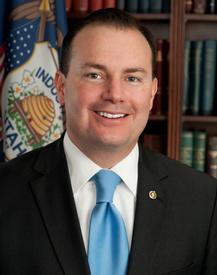
May 01, 2015
"to elevate the condition of men--to lift artificial weights from all shoulders, to clear the paths of laudable pursuit for all, to afford all an unfettered start and a fair chance, in the race of life."
--Abraham Lincoln
In recent years voters in more than thirty states have passed amendments to their state constitutions defining marriage as an exclusively male-female institution. In eleven other states, the people have chosen to redefine marriage to include same-sex relationships.
There is nothing unconstitutional about any of this. As Supreme Court Justice Anthony Kennedy rightly observed in United States v. Windsor, this is how marriage policy has always been determined in America.
The U.S. Constitution neither prohibits nor requires the states to retain the traditional definition of marriage as a union between a man and a woman. It leaves the matter up to the people to decide. And the country is obviously in the process of making up its mind.
The Supreme Court should not short-circuit that democratic process by substituting the views of five judges for those of 320 million people.
But while Americans may be divided over the definition of marriage, an overwhelming majority of people agree that the government should not coerce anyone into violating their beliefs about marriage.
A recent poll shows 81 percent of Americans agree “that government should leave people free to follow their beliefs about marriage as they live their daily lives at work and in the way they run their businesses.”
"The Supreme Court should not short-circuit that democratic process by substituting the views of five judges for those of 320 million people."
Yet today there are many individuals, associations, and businesses in America who are denied this fundamental right of conscience.
This should be concerning to all Americans, regardless of one’s view on marriage. When a government forces someone to choose between making a living serving one’s community and adhering to one’s religious beliefs, our society is left less tolerant and we are all made less free.
Many of these threats must be addressed at the state and local level. But there is also a role for Congress to at least ensure federal powers aren’t employed against those exercising their religious beliefs.